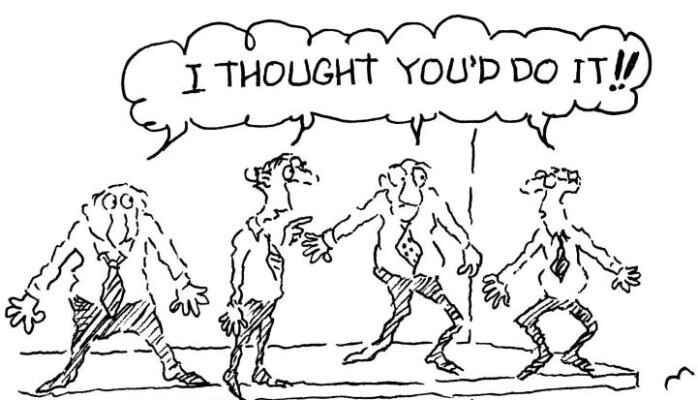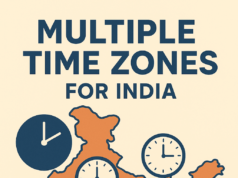Why do many community problems persist despite widespread awareness?
This question touches on a core issue in governance and civic engagement: why, even when people know about problems, they don’t take initiative and often wait for others to act.
Through a famous experiment, psychologists Bibb Latané and John Darley explored how people respond in situations requiring action. As part of the experiment, participants were placed in a room to fill out a survey. While they were doing this, harmless smoke started to fill the room. When people were alone, almost everyone noticed the smoke quickly and reported it. However, when the number of people in the room increased and others acted like everything was fine, most participants ignored the smoke, even as it grew thicker. This showed a common effect called diffusion of responsibility, where people feel less personal duty to act when others are present.
I recently experienced this on the Delhi Metro on a hot summer evening. The air conditioning in a crowded coach was barely working, making the air uncomfortable. Passengers whispered quietly but no one took action. Maybe they assumed the driver already knew or thought others would speak up. Finally, one passenger pressed the emergency button and the air cooled. This shows how, in groups, people often wait for someone else to lead, even when action is clearly needed.
Diffusion of responsibility affects more than just emergencies. It shapes how citizens respond to government policies or community problems. Many public infrastructure issues, like broken streetlights, potholes, or waste collection, persist precisely because individuals assume that others – neighbors, civil society groups, or local officials will respond. This assumption results in everyone waiting for someone else to take responsibility. As a result, fewer citizens engage directly, which weakens accountability and slows change.
One cause of this is social conformity. People naturally look to others for cues on how to behave. If no one else seems concerned, we hesitate to speak up. While social conformity usually helps maintain harmony and order, it can become paralyzing when action is needed. This hesitation leads to many community problems being ignored or left unresolved.
One of the examples is the delivery of basic urban amenities like water supply. In many cities, problems such as irregular water distribution persist because responsibility is diffused among multiple agencies such as the Jal Board, municipal authorities, and the Ministry of Water, and often there is no clear responsibility or accountability assigned within any single agency. Each assumes that others will address the issue or that it falls under another department’s jurisdiction. As a result, no single entity feels fully accountable, and citizens, aware of the problem, wait for someone else to intervene. The underlying problem is that everyone’s responsibility becomes no one’s responsibility, which prevents timely action and effective resolution. This diffusion of responsibility causes delays in service delivery, frustrating residents and worsening public trust in governance.
This also leads us to a critical point about accountability. It is not sufficient to passively hope that those in power will fix problems. Citizens must actively demand answers and action, rather than waiting. Governments and officials sometimes delay or neglect responsibilities, expecting citizens not to question them. This unequal distribution of responsibility can be challenged only by an engaged citizenry willing to speak up. Silence or apathy contributes to policy inertia and poor governance.
In New York City in 1964, perhaps the most famous case of social apathy was the murder of Kitty Genovese, who was fatally stabbed while numerous neighbors reportedly heard or witnessed parts of the attack but did not intervene or call for help immediately. This tragic death exposed the problem of bystander indifference, eventually leading to the creation of the 911 emergency system in the United States.
The recent suicide of Haryana IPS officer Y Puran Kumar exposes how diffusion of responsibility quietly seeps into governance. Despite enduring prolonged mental harassment and caste-based discrimination from several senior officers, no single individual took ownership to stop or address the abuse. This case clearly illustrates how when multiple senior officials share responsibility for addressing harassment, the lack of clear individual accountability can allow toxic behaviors to persist, resulting in tragic outcomes. This diffusion of responsibility within the system contributed to his tragic death. But the broader lesson is timeless and global. Strong communities and good governance rest on individuals willing to act, not just on laws or systems.
The lesson is not that people don’t care, rather responsibility gets diluted in groups. We want to help, but we hesitate when we think others will act. The solution is simple but requires courage.
Only when individuals consistently step forward to take responsibility and insist on action and answers will communities become healthier, more responsive, and more prosperous. In conclusion, many community problems persist not because people don’t know about them, but because diffusion of responsibility and a lack of accountability mindset prevent action.
Post Disclaimer
The opinions expressed in this essay are those of the authors. They do not purport to reflect the opinions or views of CCS.






